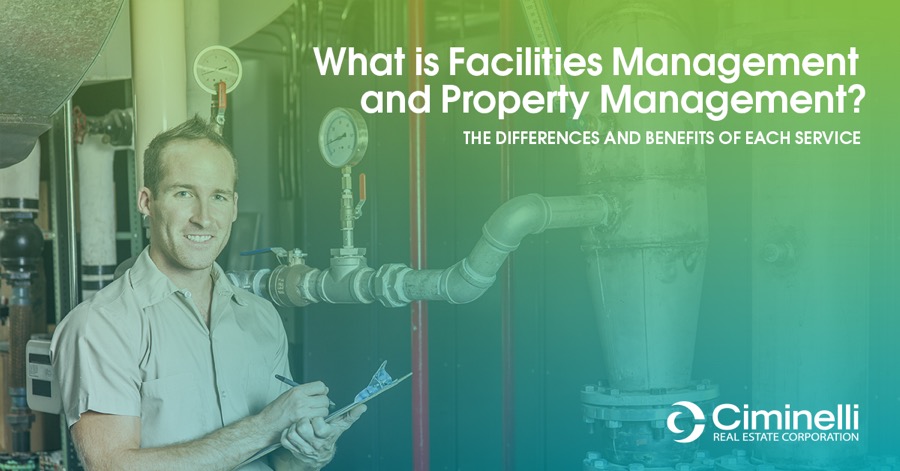Whether you’re a seasoned property owner or you recently acquired a new asset, ongoing building management is no easy task. If you’re wondering if you can benefit from management services, how do you decide if you need a facilities manager, property manager, or both? Choosing the best-suited and skilled team members to service your property will end up saving you valuable time and money in the long-run. At a glance, Facilities Management focuses on a physical property or portfolio for a business, while Property Management focuses on maintaining a profitable investment for an owner. While each service varies depending on the businesses or owners’ specific needs, consider the value adds and the differences between the two parties outlined below when building your management team.
What are the responsibilities of Facilities Managers?
- Facilities Managers have the businesses’ best interests in mind.
Facilities Managers are hired to guarantee physical buildings remain in a state that is safe and appropriate for business operations. Generally, Facilities Mangers are hired by companies looking for a team to care for a portfolio of properties, and they will hire Facilities Managers as members of their direct staff to service their properties. Facilities Managers are responsible for the day-to-day building services businesses require on a routine, as-need, or seasonal basis. - Facilities Managers act as liaisons between businesses and maintenance staff members.
Facilities Managers focus on maintaining positive experiences for the people who interact with the building on a daily basis. While Facilities Managers are not usually the main point of contact for tenants with maintenance requests, they are responsible for any service personnel that are hired to assist with building repairs and may even determine the process in which solutions will be implemented. A skilled Facilities Manager understands the innerworkings of the buildings and/or properties they manage and is quick to identify issue causes and solutions when necessary. - Facilities Managers are responsible for routine maintenance and upkeep
One of the main benefits of hiring a Facilities Manager is the primary focus will be placed on maintaining a property or portfolio through routine property maintenance. Facilities Managers understand the complexities of operating a fully functional property, whether it be a residential building, industrial warehouse, or office park. Their day-to-day work directly impacts the tenant experience with the property and/or building. If the tenants are satisfied with the condition of the building and their spaces, they are more willing to stay long-term.
What are the responsibilities of Property Managers?
- Property Managers have the building owners’ best interests in mind.
First and foremost, Property Managers are hired by building owners to oversee the asset, maintain cash flow, and even assist in leasing efforts. They put the owners’ best interests first to protect the investment. While Property Managers may be the main point of contact for prospective tenants, they primarily interact with the building owner(s) and will communicate any necessary items back to existing tenants and/or the Facilities Management team. - Property Managers act as liaisons between the building owner and the tenants.
Since Property Managers focus on building ownership, they operate as liaisons between the building owner and the people residing or working within the building. Property Managers oversee building operations with the goal of maintaining a profitable investment for the owners in mind. They will communicate any building changes or decisions made by the owners back to any involved parties on a need-be basis. - Property Managers handle leasing efforts through community building and relationships.
Property Managers generally take on the leasing efforts for a building, or at the very least play a crucial role in leasing through the relationships and communities they build. These duties can extend beyond handling the essential lease paperwork to tenant event programming, property marketing, and even social media efforts. They are also responsible for handling the property’s cash flow for the owner, which entails collecting rent and managing building expenses. Property Managers draw tenants into the building, and then maintain a positive relationship to maximize retention and profit for the building owner.
These key differences between Facilities Management and Property Management services show the value of both parties when it comes to caring for your portfolio of assets. If you would like to learn more about what these services can provide for you and your properties, or you’re ready to start the search for a reliable Facilities Management or Property Management team, visit www.ciminelli.com. To inquire specifically about our available services, reach out to Jeff O’Bannon at jobannon@ciminelli.com or call (716) 631-8000.

